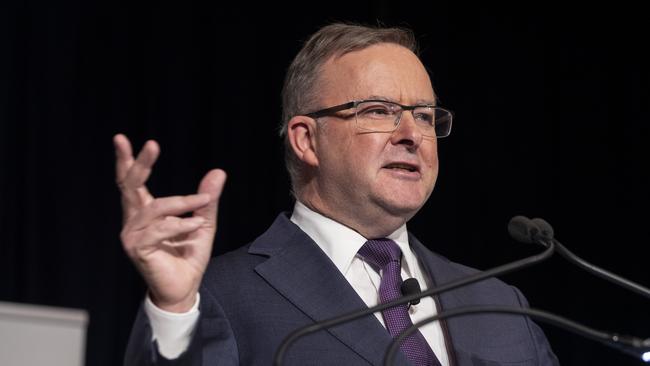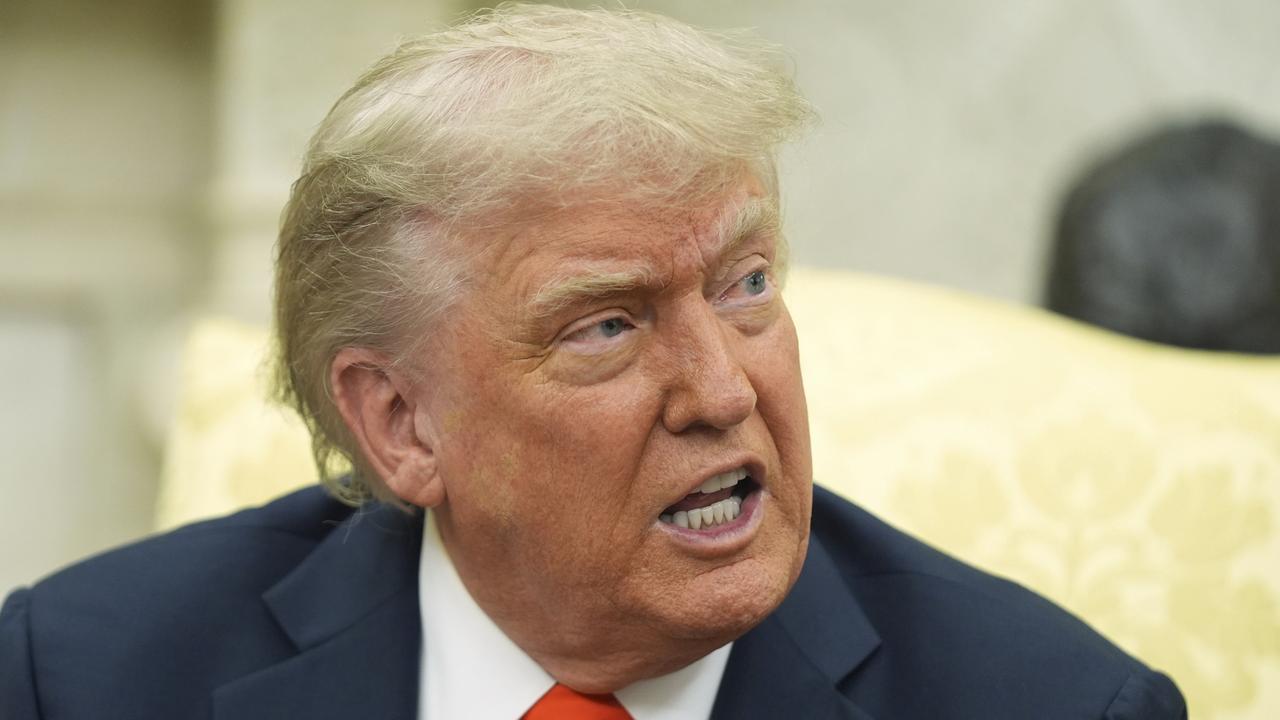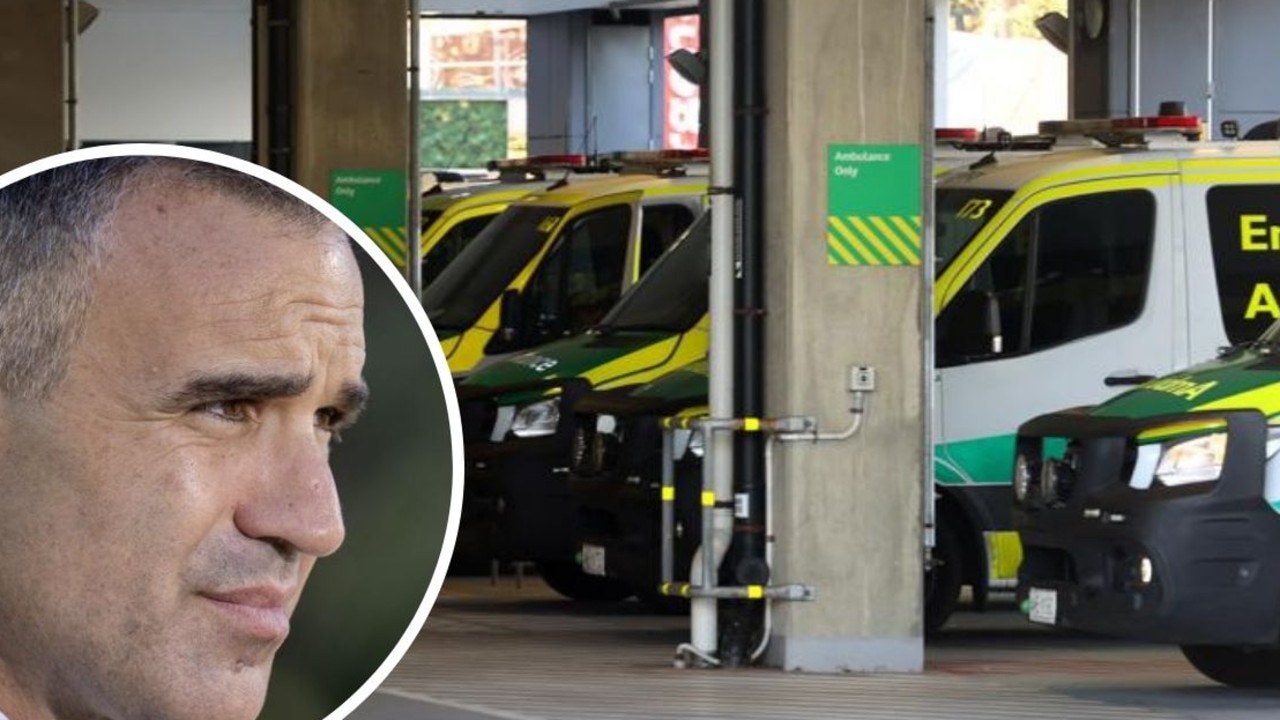Anthony Albanese will use his super tax to test Sussan Ley’s pledge to abandon a ‘Dr No’ approach | Samantha Maiden
Once described as a “quasi inheritance tax”, Anthony Albanese made clear this week that he is prepared to use his super tax as a test of Sussan Ley, writes Samantha Maiden.

Opinion
Don't miss out on the headlines from Opinion. Followed categories will be added to My News.
The recently departed Liberal leader Peter Dutton once described Labor’s plan to reduce tax breaks on superannuation balances larger than $3m as a “quasi inheritance tax” during the federal election.
In doing so, he belled the cat that for most people with superannuation balances over $3 million - the group that will be targeted by the new tax - super has become a vehicle for intergenerational wealth creation, not simply a retirement plan.
“The Labor Party believes in an inheritance tax every day of the week. It’s part of their socialist agenda,” he said.

“This is a quasi inheritance tax, call it for what it is, that’s the reality of it.”
Having made the case it is a quasi inheritance tax for the wealthy, there’s no question that the Liberal Party now grapples with a scenario where the Labor Party will argue it has a mandate for the new tax.
It’s been taken to an election.
But that doesn’t mean the Labor Party won’t have to make some changes to get it through the Senate, or that those changes might be necessary to improve and refine the proposal.
Some experts argue they should junk the whole idea and start again, although the electoral mandate for that would seem tenuous.
Anthony Albanese made clear this week that he is prepared to use his super tax as the first test of Sussan Ley’s pledge to abandon Mr Dutton’s ‘Dr No’ approach in parliament.
The value of getting the Liberals to pass the new tax rather than the Greens would be immense for Mr Albanese.
But realistically, the question remains around just how serious the Liberals are about getting to the negotiating table.
It’s hard to see the Coalition getting behind a new tax on super for the rich, although future Liberal treasurers would no doubt thank them for it.
The Labor Party faces a choice: negotiate with the Greens who want an even tougher tax with a lower threshold of $2 million or try their luck with the Coalition.
Whoever they choose to deal with, there’s little to no chance that the legislation will get through parliament without addressing the failure to index the $3 million threshold.
Labor’s long standing plan to tax multi-millionaires more on their super is designed to hit those with more than $3 million in their superannuation accounts doubling the15 per cent that all super fund members are currently taxed on their earnings.
Because super is usually taxed at less than regular income like your wage or salary, it’s an attractive way to accumulate wealth at lower rates of tax than investors otherwise could.
For example, it allows wealthy Australians - most of whom have $6 million or more in super - to pile up property and other assets in their super funds far beyond what they need for retirement.
The super tax discounts cost the federal budget an estimated $50 billion in lost revenue each year allowing the rich to slash their tax bills.
To rein in the tax breaks for the wealthy, Labor proposes a 30 per cent tax rate instead of 15 per cent on the earnings of those whose super balances are above $3 million.
This rate would only apply to the proportion of earnings that are above $3 million, that is it would still not apply to the first $3 million in super.
But critics argue that the proposed super tax is problematic for two main reasons. First, it taxes unrealised gains before the asset is sold and secondly because it’s not indexed.
The failure to index the tax means that over time, for example 30 or 40 years, it could capture normal workers with higher taxes on their super.
The third concern critics have raised is that for a small group of politicians who entered parliament before 2004, including the Prime Minister, they won’t be taxed on unrealised gains in the same way but only when they actually retire.
The reason for that issue is that politicians including former MP Peter Dutton and the Prime Minister are in what is known as a “defined benefit” retirement plans where they receive a fixed amount each year, rather than the “defined contribution” retirement funds most people have where their retirement income depends on how much they have contributed.
Because defined benefits programs do not have “earnings” in the same way as regular super funds, it is not straightforward to calculate the new tax.
“Can you confirm that the tax on $3 million superannuation funds will only apply to the Prime Minister once he leaves office, that he won’t pay any extra tax on his superannuation until he leaves office under your legislative proposal?,’’ the Treasurer was asked this week.
“I’m so pleased you asked me this question, because people have been lying about this,’’ Mr Chalmers replied.
“It’s been abundantly clear in black and white that the Prime Minister is included here, and people should stop lying about it. Now.”
However, after railing against that injustice, the Treasurer conceded that the way some politicians and other public officials would be treated was different and explained the reasons.
“We’ve been clear about how defined benefits would be treated since we announced the policy, just as the previous government did with their changes to super,’’ he said.
“We apply commensurate treatment to defined benefit interests to ensure that there are equivalent tax outcomes and the same rules apply to everyone on defined benefit schemes without the constitutional exemption, including federal politicians.
“And because the liability is paid on retirement as an interest rate applied to it to make sure that there’s no inappropriate benefit, and I genuinely really appreciate the opportunity to clear all of that up because too much has been written about that which has been wrong.”
Wrong or not, the government will have to grapple with the issue, albeit with the luxury of a 94-seat majority in the House of Representatives and two parties it can cut a deal with in the Senate.






